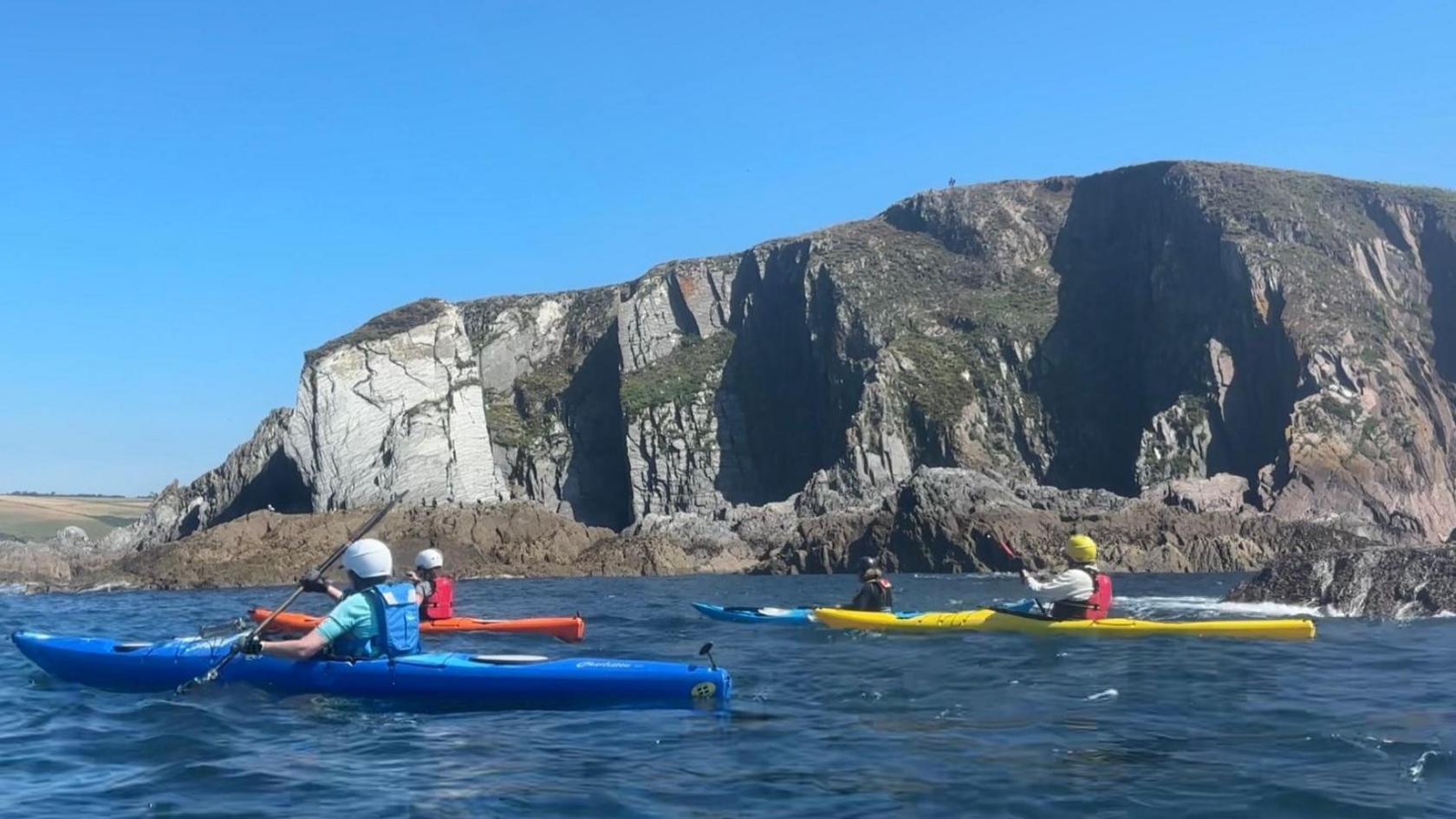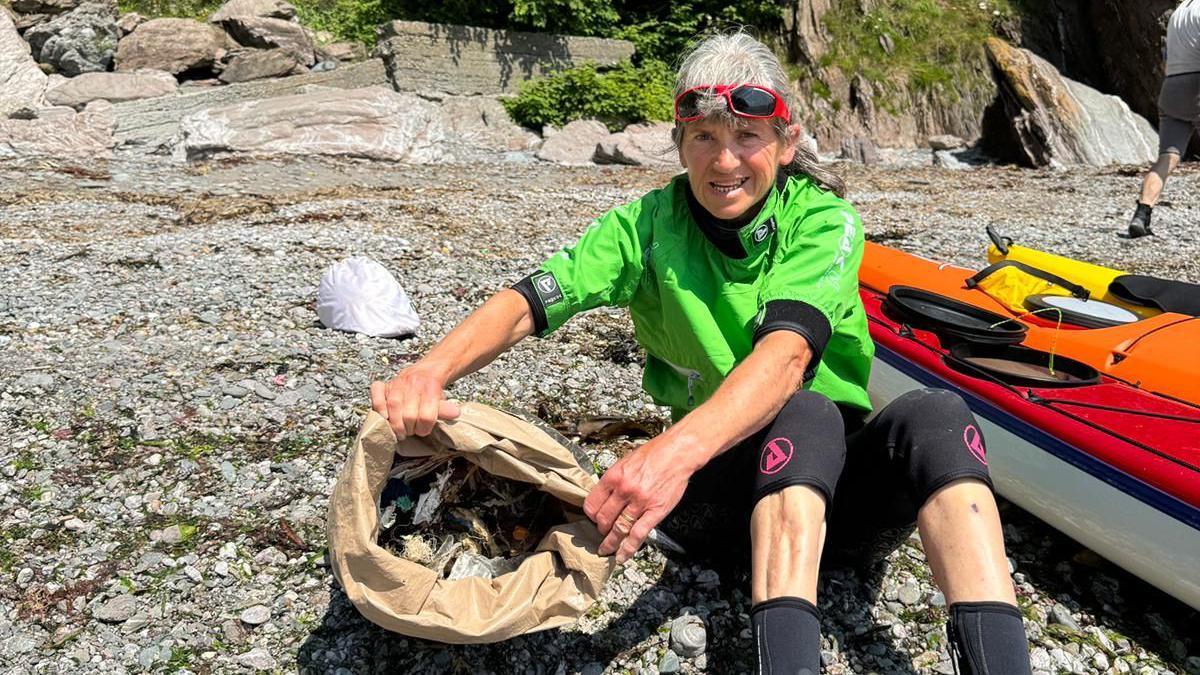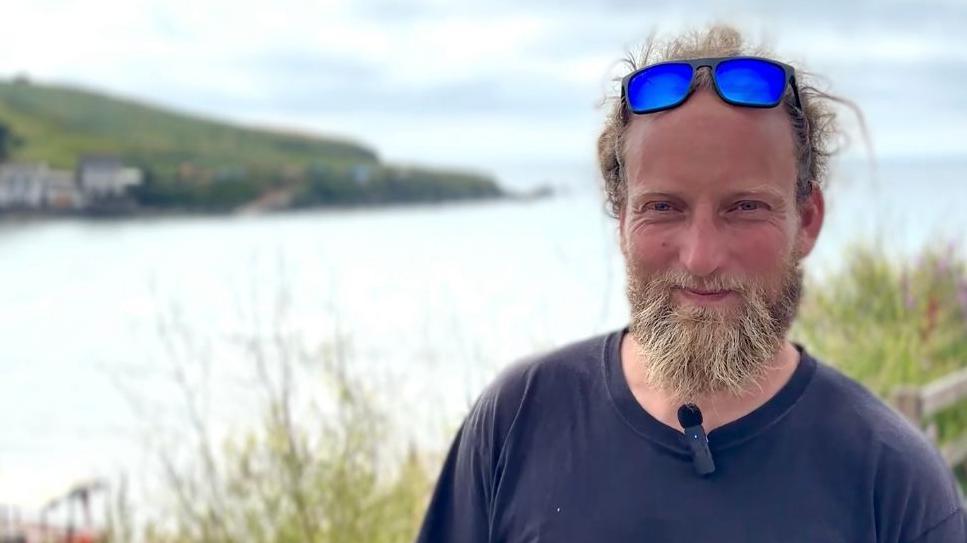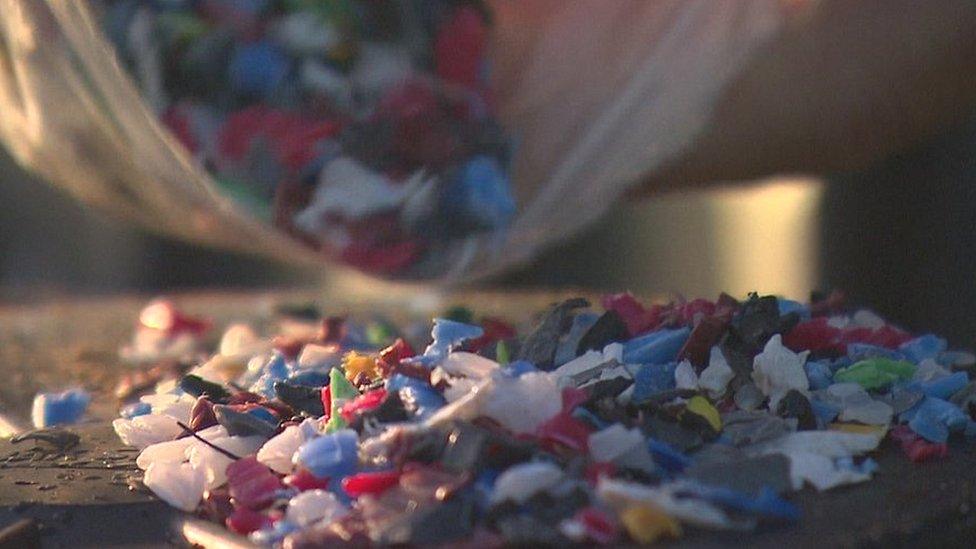Kayaking to clear plastic off Devon’s beaches

On the sea-kayaking trip, they picked up the most plastic at Pudcombe Cove
- Published
Members of the Marine Conservation Society (MCS) who kayaked around Devon’s coastline collecting rubbish are reminding beach users "we are all very much just visitors" ahead of the summer holidays.
In 2023, 97% of beach cleans recorded drinks-related litter, and 940 vapes were found across the UK and Channel Islands, according to the MCS.
On the south-west England sea-kayaking trip, they picked up the most plastic at Pudcombe Cove and paddled to caves only accessible via the water to see seals and a variety of birds.
Nick Arding, 63, a former Royal Marines officer, described kayaking and cleaning the beaches as an "all-round winner".
Since Mr Arding and his wife Phillipa, known as Pa, started beach cleans in 1998, they said they had seen a shift from general rubbish left by people to more plastic that had been washed in by the water.
He said he was urging people to do a five-minute litter sweep of each beach they visited because “it will make a huge difference.”

Pa Arding has been with the society for 12 years
Mrs Arding, 63, has been with the society for 12 years and said she had always been passionate about protecting marine life.
She has had two major injuries. The first in 2007, where she was trapped under a silage bale at her deer farm in Dartmoor.
The other was a brain injury she sustained in 2015 while skiing in Norway, but she said that it had not stopped her adventurous spirit.
She has been described by friends as the "queen" of beach cleans and in 2013 was awarded the MCS Fundraiser of the year.
A member of the group said: "As soon as Pa hears the word 'litter', her head turns."
Ms Arding said seeing seals and "rock hopping was absolutely amazing”.
She added that people visiting Devon for their holidays in the summer should "absolutely go for it" in combining paddling and beach cleans.

Nils Mueller said: "This is our planet, and we all have to help look after it"
The owner of Paddle Devon, Nils Mueller, 43, said he saw waste every day at work.
"There’s not a single beach I remember ever landing on which didn’t have any rubbish or plastic," he said.
He said his message to people was to pay attention to their environment: "This is our planet, and we all have to help look after it."
Cara Wassenberg, 56, an artist from West Sussex, joined MCS because she said she wanted to do something positive as she swam, and also creates sculptures relating to sea.
She said: "You see the amount of wildlife and you become really aware that it’s their habitat really, not ours, and we’re the ones who are trashing it"
She said she was surprised about how much rubbish collected was from the fishing industry.
"It comes home when you’re kayaking around the birds, around the seals, that you’re very much just a visitor", she added.
Follow BBC Devon on X (formerly Twitter), external, Facebook, external and Instagram, external. Send your story ideas to spotlight@bbc.co.uk, external.
- Published24 January 2018
